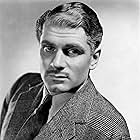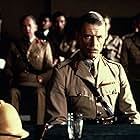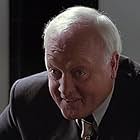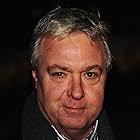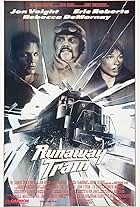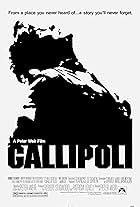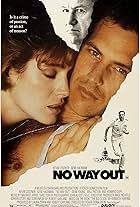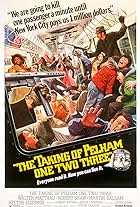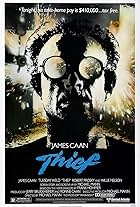Fed up with their Captain's harsh discipline, a sailing ship's crew decides to take action.Fed up with their Captain's harsh discipline, a sailing ship's crew decides to take action.Fed up with their Captain's harsh discipline, a sailing ship's crew decides to take action.
- Awards
- 2 nominations
- Young
- (as Philip Davis)
- Director
- Writers
- All cast & crew
- Production, box office & more at IMDbPro
Storyline
Did you know
- TriviaMel Gibson was disappointed with his performance and the finished movie. He later said of the movie, "I think the main problem with that film was that it tried to be a fresh look at the dynamic of the mutiny situation, but didn't go far enough. In the old version, Captain Bligh was the bad guy and Fletcher Christian was the good guy. But really Fletcher Christian was a social climber and an opportunist. They should have made him the bad guy, which indeed he was. He ended up setting all these people adrift to die, without any real justification. Maybe he'd gone island crazy. They should have painted it that way. But they wanted to exonerate Captain Bligh while still having the dynamic where the guy was mutinying for the good of the crew. It didn't quite work."
- GoofsWhen Bligh, Fryer and Christian are in Bligh's home planning the voyage, Bligh refers to a route that would take them around the coast of 'Australia'. But at the time of the Bounty's voyage in 1789 what we now know as Australia was instead universally called New Holland - a name which also appears on Bligh's map and which he later uses after being cast adrift. 'Australia' only came into common usage in the early 19th century; it gained official status in 1824.
- Quotes
Lt. William Bligh: We are still faced with a long, hard voyage. I mean to make good use of every hour of sailing time, and to assist me in this, I am replacing Mr. Fryer with Mr. Christian, who will now act as executive second in command, with the rank of Acting Second Lieutenant...
[Fryer walks away]
Lt. William Bligh: Mr. Fryer, come back here.
[shouts after Mr. Fryer, who is continuing to walk away]
Lt. William Bligh: Mr. Fryer, sir! Come back here!
[Mr. Fryer returns; Bligh continues, quietly]
Lt. William Bligh: I will dismiss when I have done with you, sir. Do you hear me?
John Fryer: This is an outrage!
Lt. William Bligh: Mr. Fryer!
John Fryer: In all my years at sea...
Lt. William Bligh: Your "years at sea"? Good Lord, man! If I'd known your nature, I would not have accepted you as boatswain of a river barge.
John Fryer: Must I suffer this before the men?
Lt. William Bligh: You will suffer my correction whenever you're at fault, sir!
John Fryer: What fault?
Lt. William Bligh: [shouts] God damn your eyes, man! You turned your back on me!
John Fryer: Well for that, I apologize.
Lt. William Bligh: Very well.
John Fryer: But I protest.
Lt. William Bligh: You protest, do you?
John Fryer: I am Master of the Bounty!
Lt. William Bligh: [shouts] And I, sir, am *Commander*! By law! I am the first! Do you understand? God damn your hide! And now you may dismiss, sir!
- Alternate versionsGerman version misses ca. 26 minutes.
- ConnectionsFeatured in The Making of 'the Bounty' (1984)
Unlike some of the previous comments for this film I think it is pretty loyal to the true historical facts of the real mutiny. Alright, there are a few minor changes to fact, but nothing that radically alters the story. Basically Bligh was a very able and fair captain, who was let down by incompetent officers. Bligh was no more a monster than any other Royal Navy captains, the difference was other Royal Navy Captains had able commissioned officers and a squad of marines to back up their authority. Bligh was on his own, because the admiralty insisted on saving money on the bread-fruit expedition by giving Bligh a small ship and no officers. (All the officers on board were non-commissioned warrant officers, who were not employed by the Royal Navy but were in it for their own advancement, Blight was the only Royal Navy officer). This is what ultimately led to the mutiny. Bligh had no one he could rely on to back up his orders from the Admiralty. Bligh was actually an exponent of modern thinking, and treated his men with much more humanity than other Royal Navy Captains. He had learnt his trade from sailing under Captain Cook.
I think Hopkins manages to capture this in his performance. Bligh was a professional man, who grew increasingly frustrated by the incompetence and laziness of his officers. Hopkins manages to convey this sense of increasing irritation brilliantly. He felt particularly let down by Fletcher Christian, who was his friend and whom he had personally advanced up the ranks. He expected Fletcher to back up his orders, but Fletcher was more interested in his own pleasure with the Tahitian women.
On the journey out the crew were actually very happy and contented, but the trouble began when the crew began to experience the liberties and freedoms of Tahitian life, and they did not want to leave it. Bligh had to force the men to go back to their duty, and instead of having officers to back him up, the officers took the side of the men.
I think the script of this film captures the true story quite well. I saw the Clark Gable version of the story many years ago, and the only thing I remember is the portrayal of Bligh as an irrational monster, with none of the reasons behind his anger explained. In this version I feel Hopkins is more like the real Bligh. An able commander trying to carry out his orders, but let down by those around him.
The confrontation between Bligh and Christian in the captain's cabin the day before the mutiny is one of my favourite movie scenes of all time. Hopkins performance of the captain at the end of his patience is just outstanding. `Oh there are rumblings are there?'. Superb!
The only down side to this film is Mel Gibson. I can't stand the sight of him! Mind you, even he manages to pull of a good performance.
The film ends quite abruptly, with a lot of loose ends. The most fascinating parts of the true story come after the end of the film. I guess the time constraints of the film mean they had to concentrate on just the story of the mutiny.
The mutineers set up a colony on Pitcairn, and ended up all murdering each other until only one survived (Jack Adams). Those that stayed on Tahiti were captured two years later by HMS Pandora which had been dispatched after Bligh got back to England. This ship rounded up about 16 mutineers, and on the way home the Pandora hit a reef off Australia and sunk. The crew had to make an open boat journey to Coupang, the same port that Bligh's life boat had arrived at two years earlier!!
Meanwhile Bligh was promoted and sent off on another Breadfruit exhibition to Tahiti, this time the Admiralty gave him commissioned officers and a squad of marines. This mission succeeded.
When the Breadfruit plants finally reached the slave colonies in the West Indies, the slaves refused to eat the fruit as they disliked the taste. That's irony for you!
- stevenwithers
- Mar 28, 2004
- Permalink
Details
- Release date
- Countries of origin
- Language
- Also known as
- The Lawbreakers
- Filming locations
- Moorea, French Polynesia(South Seas locations)
- Production companies
- See more company credits at IMDbPro
Box office
- Budget
- $25,000,000 (estimated)
- Gross US & Canada
- $8,613,462
- Opening weekend US & Canada
- $2,622,306
- May 6, 1984
- Gross worldwide
- $8,613,462
- Runtime2 hours 12 minutes
- Color
- Sound mix
- Aspect ratio
- 2.39 : 1
Contribute to this page












